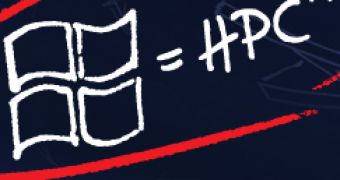Windows HPC Server 2008, Microsoft's latest version of the Windows operating system aimed at the high-performance computing market, was released to manufacturing on September 22, 2008, with the promise of democratizing HPC. But in order for Windows HPC Server 2008 to take high-performance computing mainstream, the platform needs support from developers. This is why the Redmond giant has collaborated with Indiana University to bring Message Passing Interface (MPI) to its .NET environment and implicitly to Windows HPC Server 2008. As of last week, MPI.NET 1.0 has become available for download.
“MPI.NET is a high-performance, easy-to-use implementation of the Message Passing Interface (MPI) for Microsoft's .NET environment. MPI is the de facto standard for writing parallel programs running on a distributed memory system, such as a compute cluster, and is widely implemented. Most MPI implementations provide support for writing MPI programs in C, C++, and Fortran. MPI.NET provides support for all of the .NET languages (especially C#), and includes significant extensions (such as automatic serialization of objects) that make it far easier to build parallel programs that run on clusters,” revealed Phil Pennington, Windows Server Technical Evangelism.
The first major release of MPI.NET is designed to support the most of MPI 1.1, according to the implementation's description, while MPI 2.0 is covered only in part. MPI.NET 1.0 will integrate not only with Windows HPC Server 2008, but also with its precursor, namely Windows Compute Cluster 2003. At the same time, Indiana University is offering the MPI.NET source code under the Open Source Boost Software License.
“Developers leverage the 'Windows HPC Server 2008 SDK' in tandem with the MPI.NET SDK to build MPI.NET applications. An MPI.NET runtime component must be installed onto Windows HPC Server 2008 based clusters to host MPI.NET applications,” Pennington added. “MPI.NET enables interesting new solutions to be developed which hide much of the complexity of native MPI application development.”
MPI.NET Runtime 1.0.0 is available for download here.
MPI.NET SDK 1.0.0 is available for download here.

 14 DAY TRIAL //
14 DAY TRIAL //